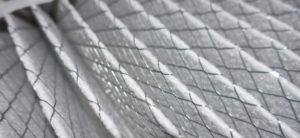 When you head to your local hardware or home improvement store or do an online search for furnace filters, you can get overwhelmed at all the choices. Before you just cover your eyes and play “eenie meenie miney mo”, let Maertin Heating and Cooling experts help you make a decision that’s right for your furnace and your family.
When you head to your local hardware or home improvement store or do an online search for furnace filters, you can get overwhelmed at all the choices. Before you just cover your eyes and play “eenie meenie miney mo”, let Maertin Heating and Cooling experts help you make a decision that’s right for your furnace and your family.
Size Really Matters
The most important factor is size. Your furnace filter needs to be the exact size that your furnace calls for in width, height and depth. Smaller filters let air pass around the filter, allowing dirt and debris into the blower compartment, making your furnace and your home dirty. Filters that are too large will bend and warp, also allow unfiltered air into the blower compartment. If it’s unclear what size filter your furnace needs, give Maertin a call and we’ll help you find the proper measurements.
When Air Quality Is Important
If someone in your family has allergies, smokes indoors or if you frequently burn candles, selecting a HEPA filter can be the best choice. HEPA filters eliminate at least 99.97% of particles that are 0.3 microns or larger. To get an idea of how small that is, the dust particles you can see in sunlit air are about 25 microns, and a human hair is about 70 microns. Tobacco smoke and the staphylococcus bacteria are about .3 to 1 microns in size. The EPA states that MERV filters rated 7 to 13 are “nearly as effective” as HEPA filters, but these can reduce your furnace’s efficiency.
When your filter is capturing pollen, allergens or candle or tobacco smoke, you’ll need to change your filter more often.
When Reusable Is Important
When you’re trying to reduce your carbon footprint, washable filters are an option. There are flat panel and pleated filters that can be washed with a hose, but these are not zero-waste as the filter will degrade and lose its efficiency over time.
Consider washable electrically charged or electret filters that not only filter particles but actively attract them. These filters provide better airflow than denser items, maintaining your furnace’s efficiency. Be aware that they will lose their electrostatic charge over time and with washing, filtering significantly fewer and fewer smaller particles.
When Saving Money Is Important
Basic fiberglass filters and lower rated MERV filters (1-4), sized for your furnace, can be the most cost-effective choice, but they should be changed monthly, which may end up being more expensive than a better filter in the long run. They are also much less efficient, filtering particles larger than 10 microns, such as carpet fibers, pet hair and heavy dust. Fiberglass will help keep your furnace from getting really dirty, but it won’t really clean your air.
Using MERV filters that are rated higher than recommended for your furnace reduces airflow in your HVAC system and makes your system work harder and less efficiently. This continued stress can reduce the lifespan of your furnace, making it more likely you’ll replace the furnace sooner than anticipated.
When seasonal allergies affect your family, you could use a more expensive HEPA filter only during those months, then switch to a less costly filter at other times of the year.
Still confused? We understand! There’s a lot to consider! Just click here and send us your questions. We’ll get back to you with our filter recommendations to keep your family, your furnace and your wallet happy.



Add Comment